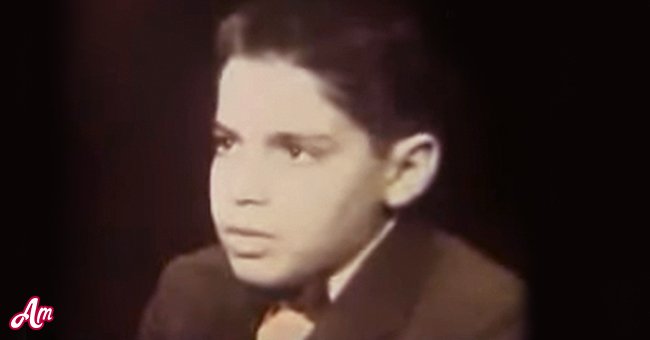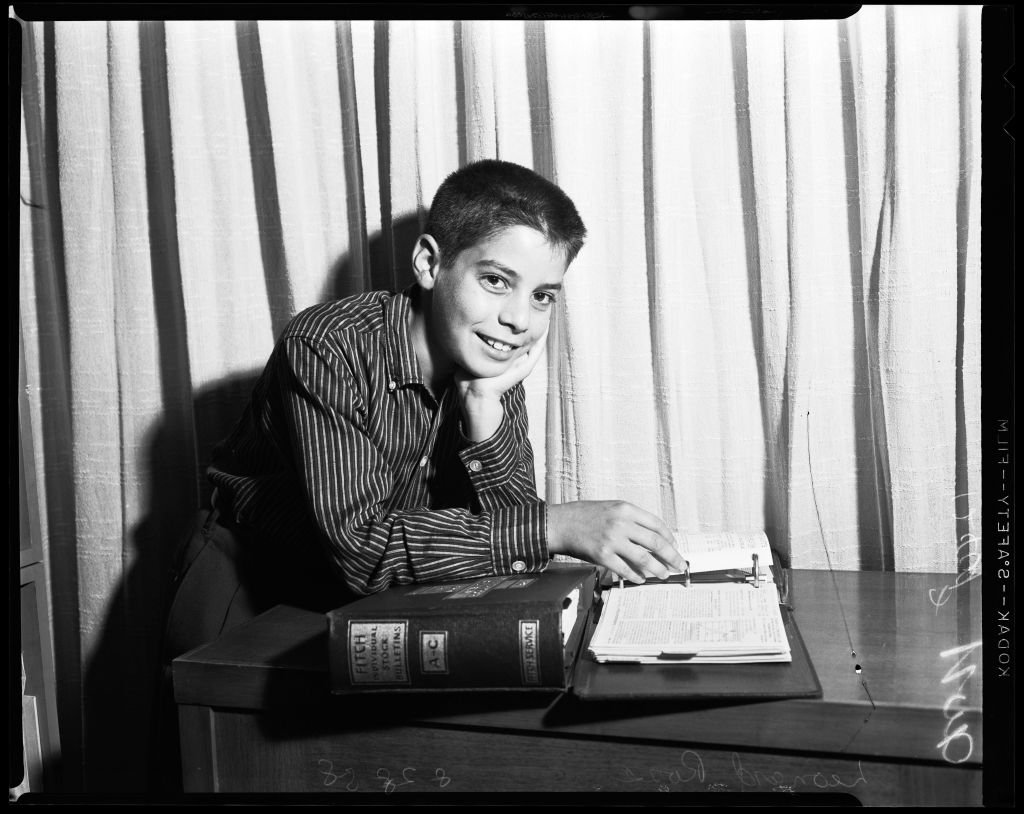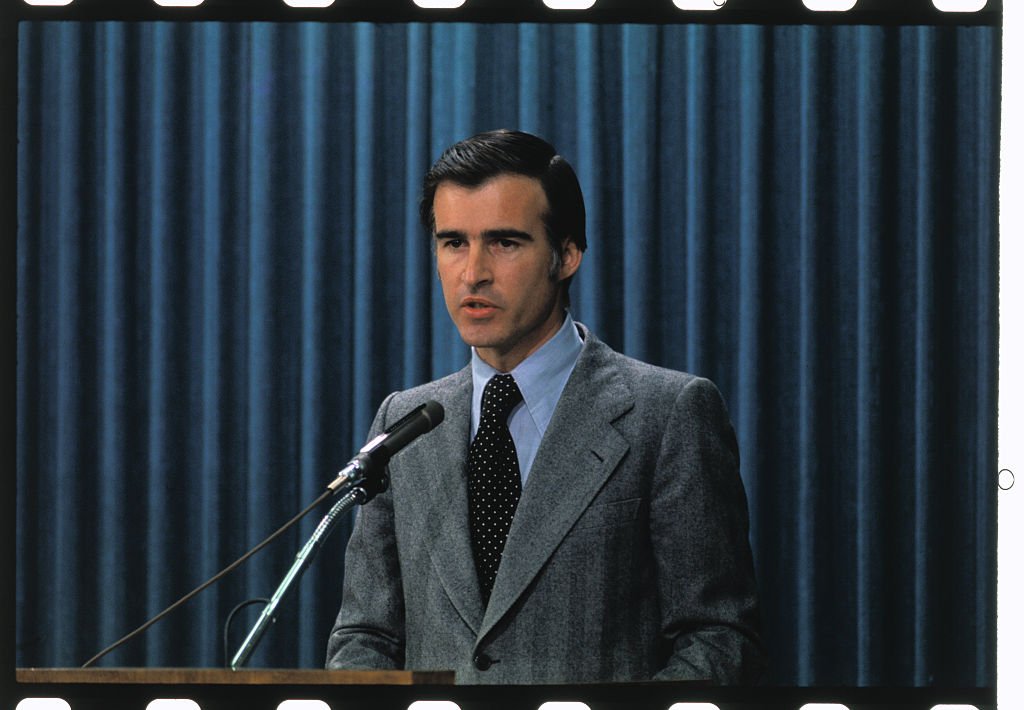Lenny Ross was a child prodigy whose life got ruined by his early fame and mental struggles. Although he sought different ways to get better, his inner demons eventually took the best of him.
Born in July 1945, Leonard “Lenny” Ross became a national sensation and was labeled a child prodigy for his incredible intelligence, but he sadly passed away even before turning 40.

Leonard Ross during an interview with Mike Wallace in December 1957 | Photo: YouTube/David Pádua
BECOMING A NATIONAL SENSATION
Ross attracted everybody’s attention in 1956 when he took home $100,000 on the TV quiz show “The Big Surprise.” At the time, he was only ten years old.
The following year, Ross, who had been reading reports about the stock market since he was just seven years old, became the biggest money winner in the history of radio and TV quiz shows after winning “The $64,000 Challenge.”
As expected, his record-breaking feat made him nothing short of a celebrity. As a “child prodigy,” he would appear on different TV shows, including the “Mike Wallace Interview.”

Mike Wallace, Sue Oakland and Mary Gardiner on "The Big Surprise" circa 1956 | Photo: Wikimedia Commons Images
ROSS’ “NORMAL” CHILDHOOD
Aired in December 1957, Ross’ conversation with Mike Wallace gave people a glimpse of his unique personality. He used an extensive vocabulary and fluently talked about his personal life and experience with TV quiz programs.
When asked if his appearances on the shows prevented him from living a normal childhood, the then 12-year-old child wondered what “normal childhood” meant and also asked if not being interested in a particular topic made kids “wonderfully normal.”
The very same thing that made him special started to fail: his brain.

Leonard Ross on August 28, 1958 | Photo: Getty Images
Ross also admitted he didn’t have friends as he spent his mornings at school, studied for two more hours when he came back home, and read “a mystery” or “serious matters” for the rest of the day.
Even with such a tight schedule, he pointed out that he had more free time than needed and wanted to reduce it. He added:
“Instead of going to the movies, I may read a mystery. This isn’t because I’m antisocial or anything – I’ve had quite a few friends previously – it’s because my schedule has changed.”
ROSS’ ADULT LIFE
In 1963, Ross started studying at Yale Law School. At 18, he was four years younger than most of his fellow first-year students, but after only one month, he had already read every subject for the first term and would help everybody else.
He tried to put all his knowledge to good use by teaching at Harvard University and Columbia Law School before working in California Governor Edmund G. Brown Jr.'s administration.
Unfortunately, the very same thing that made him special started to fail: his brain. Ross’ friends said that he started having many racing thoughts and his attention span got shorter.

Edmund G. Brown, Jr. during a press conference in March 1972 | Photo: Getty Images
Even during his teaching days, he would show poor table manners and dress sloppy. His teaching skills were not as successful, either. After being incapable of winning a permanent post at Harvard and resigning from Columbia, he was disappointed.
Ross also started showing manic behaviors, like being a compulsive overeater and dieter, talking much faster, and unable to focus his attention for long.
In the late 70s, he started working with the State Department during President Jimmy Carter’s administration, hoping to influence national events. Instead, he faced another disappointment. Former president of New York Air Michael Levine said:
“He became aware in a very direct way that this wasn't a world in which you just got to the right place and then got to the levers and really changed things.”
ROSS’ PASSING
Ross resigned after a year and got severely depressed. After he unsuccessfully tried to end his life due to a failed romance, his friends noticed something was “quite wrong” with him.
One of his psychiatrists believed that his early fame and incredible success "ruined him" as a child prodigy was such a powerful event that it messed with his normal development.
He became so sure that his emotional issues had a physical cause that he researched unorthodox treatments in medical libraries. After following strict drug regimes, shock treatments, and brain surgery, Ross’ mental problems didn’t disappear.
On May 1, 1985, Ross was found dead in the swimming pool of the Capri Motel. He was not registered as a guest, so he had to climb over a padlocked fence during the night to get there. He was 39 years old.
Ross’ friends were not surprised about his suicide as they had been seeing him melting in front of their eyes like a "great painting." There's an "enormous sense of waste," admitted Levine. Rest in peace, Lenny.
If you or someone you know is considering suicide, please contact the National Suicide Prevention Lifeline at 1-800-273-TALK (8255), text "help" to the Crisis Text Line at 741-741, or go to suicidepreventionlifeline.org.
ncG1vNJzZmimlazAb63MqKSapZFjsLC5jmtucW9hbHqtsc2nsGaqn6jAbsPArGSaZZ6Wwaq7zZqjZpuYnrmlec%2Brpp2hl657qcDMpQ%3D%3D